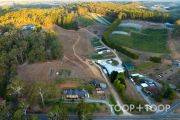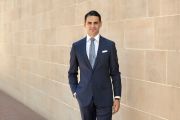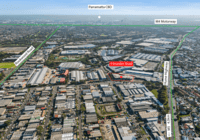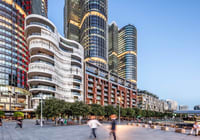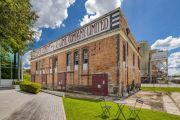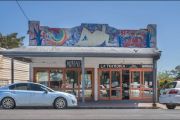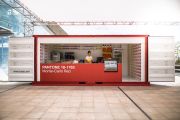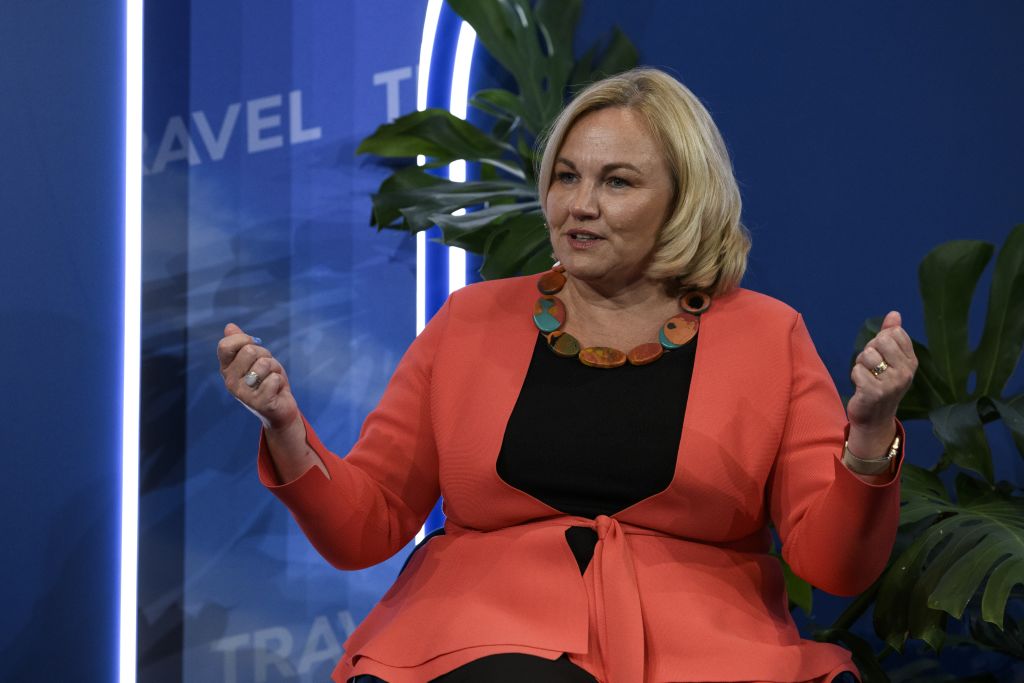
Housekeeping on demand, QR codes and better rooms: How hotels have adapted for post-COVID-19 travel
The global hotel industry is using the COVID-19 business downturn to streamline its costs, invest in technology, room upgrades and new hotel attractions, and even to consider ventures like becoming vaccination centres in the short-term.
“It’s going to take two to three years before we see international travel again in any meaningful way,” said Patrick Pacious, international president and global CEO of one of the world’s biggest hotel groups, Choice Hotels.
“In the meantime, in Australia, there’s so much pent-up demand in 2021, after the lockdowns, that there are a lot of opportunities domestically. So, we want to make sure we have strong balance sheets [by] reducing costs and investing back in the business to focus on the recovery.”
With hotel revenue down by more than 52 per cent in Australasia, according to global tourism research company STR, and 72 per cent down in Europe, it’s been a hard road, and the end is a way off yet.
STR regional manager Pacific Matthew Burke said the only bright spots had been bookings over holidays and weekends, with Australians taking short driving holidays not too far from their homes because of uncertainty over state borders.
“2021 will be similar to 2020, we believe,” he said. “Some areas are doing better, like some of the regions not far from capital cities, but Sydney and Melbourne lag behind the other capital cities like Brisbane and Perth.
The pair spoke at the annual Hotel Investment Conference (HICAP) this week, with industry leaders gathering virtually to discuss the current state of play, specifically in the Australia-New Zealand area.
While the hotel industry generally has been battered by the pandemic, and some hotels are yet to reopen, they presented a generally optimistic view of the sector’s resilience and hopes for the future.
Smart technology and ‘housekeeping on demand’
Some of the new processes introduced for guests during COVID-19 may be with us for the foreseeable future, believes Mr Pacious – whose company has 7100 hotels internationally and 60,000 rooms – like higher cleanliness and hygiene standards, as well as innovations like “housekeeping on demand”.
“We introduced that in the US because some guests didn’t want rooms turned every night and wanted to limit the number of people coming into their rooms,” he said. “So, we’ll probably now roll that into international markets.”
Other changes on the way will include the use of smart technology to keep track of housekeeping and improve check-in speeds. Greg Shaw, CEO of Mulpha Australia, one of Australia’s biggest real estate and hospitality investors, says refining hotel technology has been a priority during this period.
Among the new systems introduced have been those where housekeepers scan QR codes so reception desks can tell guests the moment their rooms are ready, ones that register the moment guests go into breakfast so their rooms can be cleaned while they’re there, and tools for staff training.
“In the first four weeks on Hayman Island, we saved the equivalent cost of two full-time housekeepers and were able to give guests a much better level of service,” said Mr Shaw. “Our labour productivity rose, and we were able to make staff more responsive to guests.”
Hotel developer Dr Jerry Schwartz, who owns or has an interest in 13 hotels and hotel developments, including the Sofitel Sydney Darling Harbour and the new Four Points by Sheraton in downtown Sydney, has also invested in technology. At the same time, he’s selling his Sheraton, his last purchase, he says to decrease his debt and improve his equity position so he can buy more hotels when the time is right.
“But this period we saw as an opportunity to upgrade technology, and our Accor now has the first check-in kiosk in the world,” he said. “We’ve also introduced keyless door cards at the Hilton on the Gold Coast and upgraded the Crown Plaza in the Hunter Valley.”
Resurgence in regional and luxury travel
There are bright spots on the horizon, too. Hotels in many of the regions are seeing business pick up much more quickly than those in the capital cities, and there’s a resurgence in the demand for luxury.
Graham Perry, general manager Australasia of Best Western Hotels & Resorts, whose properties are 80 per cent in the regions, says that despite the impacts of bushfires last year and then the pandemic, there are good signs of a recovery.
“The regional areas accessible by capital cities are doing really well, although it is a mixed bag,” he said. “Then you have a place like Byron Bay which is doing extremely well, and we could fill double the number of rooms we have and sell out of the next few months.”
Tourism Australia has also pivoted its business away from attracting overseas guests to pumping up domestic business with its Holiday Here This Year campaign. They’ve seen a growth in the appetite of Australians, having saved cash from not going overseas, for splashing out here instead.
“From research, we know half of all Australians are actively planning a holiday right now,” said Tourism Australia managing director Phillipa Harrison. “They’re not doing ‘experiences’ like international holidaymakers … but it’s no secret that there’s all this money now in the world, and not just high-net-worth individuals.”
In response to this emerging trend, Mulpha has launched luxury holiday homes on Hayman Island, is undertaking a $100 million refurbishment of its Intercontinental Hotel in Sydney and is adding a distillery to its Bimbadgen Winery Estate in the Hunter Valley and building 60 cabins in a boutique resort. “There’s now a real propensity to spend money on luxury,” said Mr Shaw.
Operators hope there will be a bonanza when international tourists flood back to a country with an enviable COVID-19 safety record. “We’ve got a bloody tough 12 months to get through,” said Ms Harrison. “But when we’ve done that, the future is looking good for tourism in Australia.
“And we’re going to have a grand re-opening of Australia and bring everyone down here, with the global press, and have a party. That’s the plan!”
